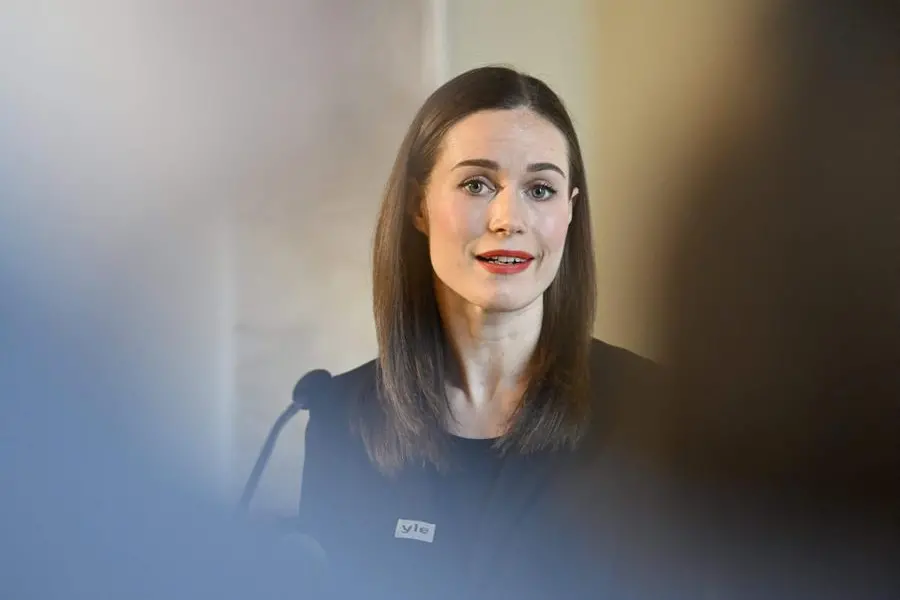PHOTO
Finland's Prime Minister Sanna Marin, who lost a general election at the weekend, said Wednesday that she would step down as Social Democratic Party leader and dismissed notions of any international postings.
"I have come to the conclusion that I will not seek to continue as SDP leader at the forthcoming party conference in September," Marin told reporters in Helsinki.
The 37-year-old said she would continue as a lawmaker, despite speculation that she could be in the running for a top job at an international agency.
"I have not been offered any international posts. I will continue my work as a member of parliament," Marin said.
She will submit her government's resignation on Thursday, acknowledging that her term as prime minister had taken a toll.
"My own endurance has been tested at times during these years," she said.
Hoping to live "a little calmer life," she also said she would not seek the presidency when current head of state Sauli Niinisto's second and final term ends next year.
But Marin intends to lead the SDP's negotiations with the National Coalition Party, which won Sunday's legislative election in a close race, in the coming talks on forming a new government.
The biggest party in parliament traditionally gets the first chance to form a government, which means conservative leader Petteri Orpo will have to decide whether to build a coalition with the SDP or the far-right Finns Party, which came in second.
But Marin said she did not expect to be a cabinet member in the next government even if it includes her Social Democrats.
"I don't think it's likely that I would be in that line-up of ministers myself," she said.
- Election defeat -
After basking in the spotlight of European politics, Marin failed to turn her exceptional popularity into enough seats in parliament for her Social Democratic Party to remain in power.
The SDP came in third place in the elections with 43 seats, behind the conservative National Coalition with 48 seats and the far-right Finns Party with 46.
"Now that the election result was like this, I believe that I also have the opportunity to reflect on my own life and turn a new page," she said.
Marin, who became the world's youngest prime minister in 2019 at the age of 34, was Finland's most popular prime minister in decades, according to polls, but her reputation in the Nordic country has been polarising.
While some view her as a strong leader who deftly navigated the Covid-19 pandemic and the NATO membership process, others see rising public debt on her watch and backlash over video clips of her partying as signs of inexperience.
The centre-right National Coalition Party focused its winning campaign on the economy, accusing the government of financial irresponsibly.
Marin meanwhile defended her track record and accused the National Coalition of wanting to "take from the poor to give to the rich."





















